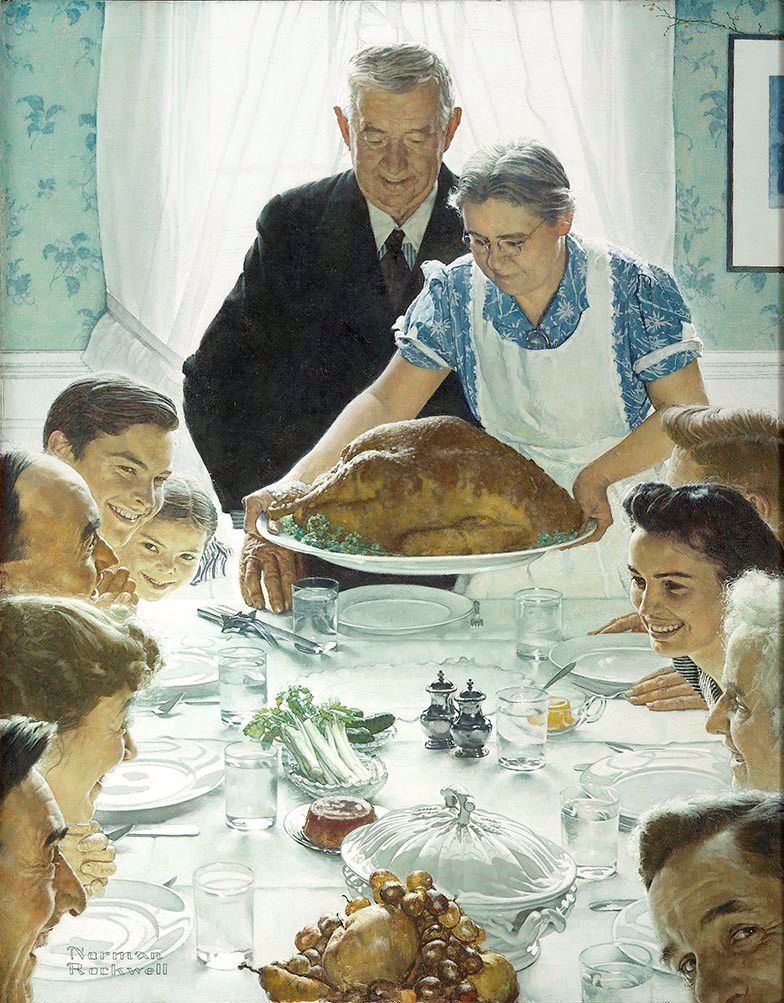
When we gather around our holiday tables we’re creating moments that are iconic in American culture. So it’s no surprise that “Freedom From Want” is the most famous of painter Norman Rockwell’s Four Freedoms series—it’s a warmly mythic depiction of a family about to dig into their holiday turkey dinner. The grandparents seem humble and gracious, the cross-table looks are eager and inviting, and everyone is delighted with each other. But reality is somewhat less gratifying. Rockwell later told an interviewer that he painted what he wished life was like, not how he truly experienced it. He was married three times—the first ending in divorce, the second ending tragically when his alcoholic wife took her own life.
The gap between what we long for and what we must accept is a breeding ground for cynicism. In “All in the Family,” comic illustrator Jerry Miller’s dysfunctional version of Rockwell’s original, the grandfather is tipsy, the kids are lost on their phones or stone-faced bored, and the parents are disgusted. Somewhere in the middle of these extremes is our raw reality—where grace, not wish-fulfillment, defines our relationships. And grace leads us into reconciliation—the restoration of authentic relationship that doesn’t require total agreement as a prerequisite.
In this Reachable Reconciliation conversation, Fred and I talk about the relational tension that almost always accompanies holiday family gatherings. We recorded this conversation before Thanksgiving, so we use Thanksgiving examples, but Fred’s takeaways and practical helps have traction for any holiday gathering of friends and family. The same is true of ongoing tension in our congregational relationships—here, Fred offers a powerful bridge-building tool embedded in a simple phrase: Two things can be true at the same time.



